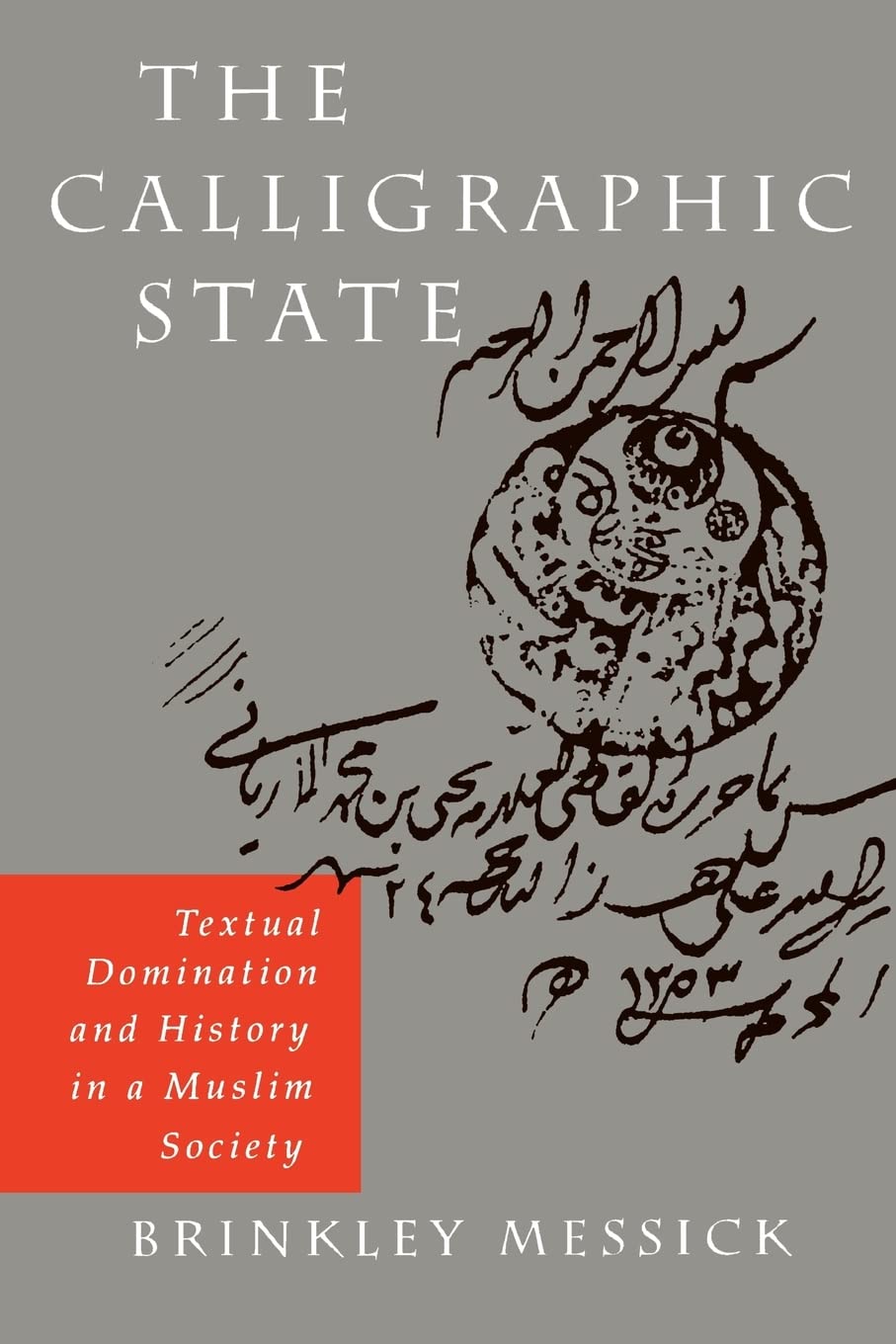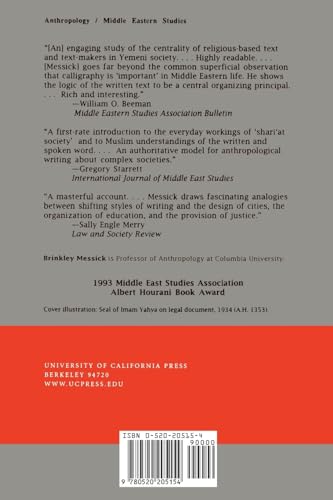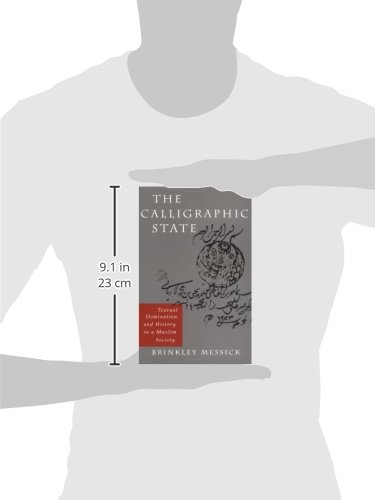In this innovative combination of anthropology, history, and postmodern theory, Brinkley Messick examines the changing relation of writing and authority in a Muslim society from the late nineteenth century to the present. The creation and interpretation of texts, from sacred scriptures to administrative and legal contracts, are among the fundamental ways that authority is established and maintained in a complex state. Yet few scholars have explored this process and the ways in which it changes, especially outside the Western world. Messick brings together intensive ethnography and textual analysis from a wealth of material: Islamic jurisprudence, Yemeni histories, local documents. In exploring the structure and transformation of literacy, law, and statecraft in Yemen, he raises important issues that are of comparative significance for understanding political life in other Muslim and nonwestern states as well.
The Calligraphic State: Textual Domination and History in a Muslim Society (Comparative Studies on Muslim Societies) (Volume 16)
$27.90
This book offers an analysis of the relationship between literacy, law, and statecraft in a non-Western context, valuable for social studies and history.
Additional information
| Weight | 0.499 lbs |
|---|---|
| Dimensions | 15 × 2.3 × 22.9 in |





Reviews
There are no reviews yet.